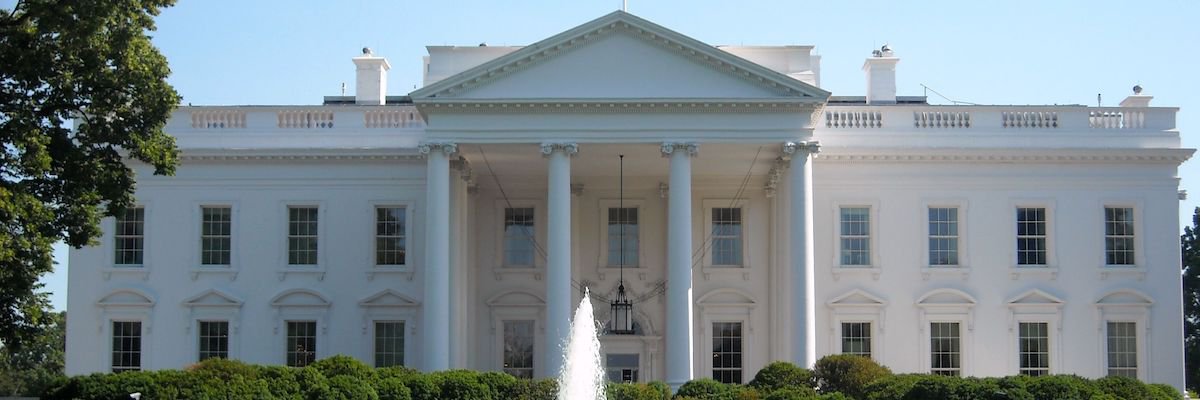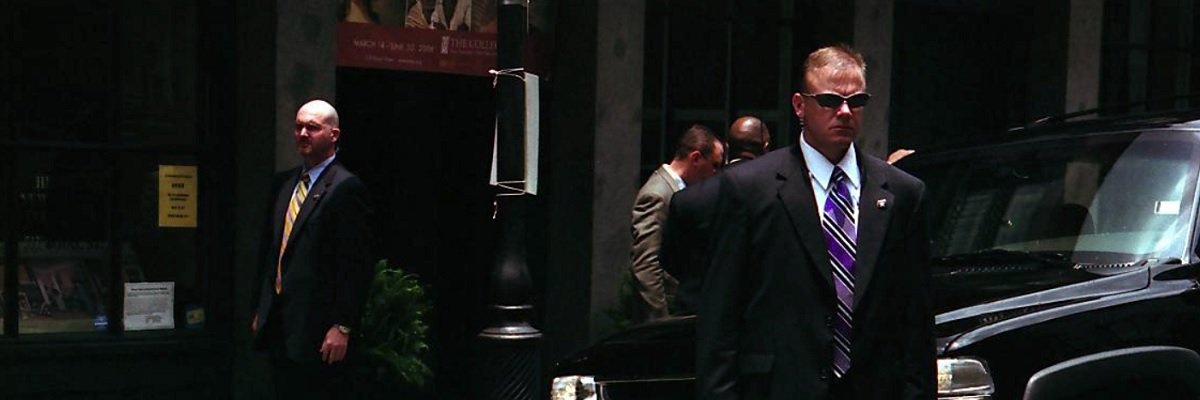We’re one full year away from the 2020 election for President of the United States, and this, of course, means we’re already right in the thick of it.
At MuckRock, we want our political bigwigs and career bureaucrats alike to appreciate the critical importance of government transparency. The openness of any potential administration, Democrat or Republican, is going to impact how the public will be included and be able to engage on all of the other issues important to voters and the future of the country.
Needing to better understand where the candidates stand on the public’s right to know, we reached out to each individual in the race (and some who have recently left it). We looked through candidates’ statements, news stories, interviews with other outlets, and publicly-stated stances on the Freedom of Information Act, public records laws, and transparency.
Most of the candidates support expanding FOIA: in general, to the White House, or even to Congress. Some candidates are frequent FOIA requesters themselves. Some (okay, one) wrote to us paragraphs about a belief in freedom of information. Others didn’t have anything to say at all (though that didn’t prevent them from adding us to their mailing lists).
For your consideration, here are the results of that research, which will be updated as appropriate.
Click the arrow beside each candidate’s name to learn more.
DEMOCRATIC CANDIDATES
**Michael Bennet**
If you could send 17 letters to the White House and other agencies about public information and the proper implementation of FOIA, would you? Senator Michael Bennett would and did during [Sunshine Week](http://sunshineweek.org/) in 2017, [saying](https://www.bennet.senate.gov/public/index.cfm/2017/3/bennet-highlights-importance-of-information-and-transparency) "Sunshine Week's mission to highlight open government is more important now than ever before." There’s been no word from his campaign about how he’d deal with FOIA as president or if he’s participated in Sunshine Week since, but his legislative record is promising. Bennet is now co-sponsoring [the CFPB Student Loan Integrity and Transparency Act of 2019](https://www.congress.gov/bill/116th-congress/senate-bill/720/all-info), which would, among other things, require the student loan ombudsman of the Department of Education to provide student loan data to the [Bureau of Consumer Financial Protection](https://www.muckrock.com/agency/united-states-of-america-10/consumer-financial-protection-bureau-2589/). The bill cites a report by the Office of Students and Young Consumers, which the bill notes was only released recently through FOIA.**Joe Biden**
Unfortunately, current frontrunner and former Vice President Joe Biden hasn’t said much on changing FOIA policy. This lack of comment, however, is itself something of a comment. When the [New York Times](https://www.nytimes.com/interactive/2019/us/politics/joe-biden-executive-power.html) asked about his stances on particular reforms to executive power, Biden responded by selecting from the list reforms that he would be inclined to sign into law. He did not include "The application of Freedom of Information Act requests to White House record," suggesting that he would *not* be inclined to sign such a reform into law. That isn’t the end-all-be-all of Biden’s views on government transparency, of course. Biden’s long legislative career includes co-sponsorship of a bill in 1975, two years into his first term as a Senator, called "A Bill to Protect Individual Privacy in Federal Gathering, Use, and Disclosure of Information." Also known as the “[Government in the Sunshine Act](https://www.congress.gov/bill/94th-congress/senate-bill/5),” it [amended FOIA](https://www.govinfo.gov/content/pkg/STATUTE-90/pdf/STATUTE-90-Pg1241.pdf) to clarify exemption 3. Biden also co-sponsored the [Anti-Drug Abuse Act of 1986](https://www.congress.gov/bill/99th-congress/senate-bill/2878?q=%7B%22search%22%3A%5B%22Anti-Drug+Abuse+Act+of+1986%22%5D%7D&r=1&s=4), which, among other things, [amended FOIA](https://www.justice.gov/oip/blog/foia-update-foia-reform-legislation-enacted) to address the fees charged by different categories of requesters and the scope of access to law enforcement and national security records. A well-defined part of Biden’s policy plans includes the creation of a [Commission on Federal Ethics](https://joebiden.com/governmentreform/ ). This new agency would, among other things, collect ethics information and make it publicly available on a new website, *ethics.gov*. According to the campaign, "it will compile campaign finance, financial disclosure, and lobbying information all in one place — and, as detailed in this plan, that information will be more comprehensive than ever." Such information would include meetings between lobbyists and elected officials, legislative language or bill text submitted by lobbyists, corporate solicitations of White House favoritism, and campaign finance data. Biden has also been the subject of many a FOIA request. He and his son Hunter are at the center of the actions leading to the Trump impeachment inquiry and many recent FOIA requests are particularly interested in them. Some go after the Bidens directly, as in the case of a request (and [subsequent lawsuit](https://www.cnsnews.com/blog/craig-bannister/judicial-watch-sues-records-vp-biden-pressuring-ukraine)) from [Judicial Watch](https://www.judicialwatch.org/). Others go after Trump’s attempt to get Ukraine to investigate the Bidens, like the [request](https://thehill.com/homenews/senate/467047-senate-democrats-submit-foia-request-for-ukraine-biden-info) made by a group of senators including Sen. Kamala Harris. In 2014, Ronald Kessler [claimed](https://freebeacon.com/politics/joe-biden-stonewalled-foia-request-to-hide-travel-costs/) in his book *[The First Family Detail](https://www.penguinrandomhouse.com/books/234655/the-first-family-detail-by-ronald-kessler/)* that Joe Biden had blocked a FOIA request filed by Kessler. The request, filed to the Air Force, sought records of Biden’s personal travels. According to Kessler, Biden’s deputy counsel Jessica Hertz "took over the FOIA case from the [Air Force](https://www.muckrock.com/agency/united-states-of-america-10/air-force-86/)" and “ordered it not to release the 95 pages of documents it had compiled.” The documents were eventually released and showed that Biden’s Air Force Two flights from January 2009 to March 2013 had cost taxpayers almost $1 million. MuckRock has an [open assignment ](https://www.muckrock.com/news/archives/2019/jul/30/cia-biden-assignment/)where you can look through some of the CIA’s files on Joe Biden. The files were declassified by President Obama’s Executive Order 13526, while Biden was serving as vice president, and are now available through the CIA’s CREST archive.**Cory Booker**
Booker hasn’t publicly laid out any positions on FOIA expansion, though he is a frequent high-profile requester. Last year, Booker and five other Democrats on the Senate Judiciary Committee filed a [FOIA request](https://www.cnbc.com/2018/09/17/six-senate-democrats-file-foia-lawsuit-for-kavanaugh-documents.html) and later sued for documents related to Brett Kavanaugh’s time as staff in the George W. Bush administration. In 2017, Booker co-sponsored the [Animal Welfare Accountability and Transparency Act](https://www.congress.gov/bill/115th-congress/senate-bill/503/cosponsors?q=%7B%22search%22%3A%5B%22Cory+booker%22%2C%22transparency%22%2C%22transparency%22%5D%7D&r=97&s=1), which would have required the [Department of Agriculture](https://www.muckrock.com/agency/united-states-of-america-10/usda-office-of-the-secretary-6270/) (USDA) to "maintain and publicly disclose records relating to the administration of the Animal Welfare Act and the Horse Protection Act." That bill didn’t make it past the Senate finance committee. Booker is currently sponsoring the [Dignity for Detained Immigrants Act of 2019](https://www.congress.gov/bill/116th-congress/senate-bill/1243/text?q=%7B%22search%22%3A%5B%22Cory+booker%22%2C%22transparency%22%2C%22FOIA%22%2C%22transparency%22%2C%22FOIA%22%5D%7D&r=1&s=2), which, among other things, ensures that certain reports and "any contract between the Department of Homeland Security and a private or public entity which provides for the use of a facility not owned by the Department of Homeland Security to detain aliens in the custody of the Department of Homeland Security" are subject to FOIA and not exempt under [Exemption 4](https://www.muckrock.com/news/archives/2018/mar/02/foia-exemption-b4/).**Steve Bullock**
[Steve Bullock](https://governor.mt.gov/), current governor of Montana, [has said](https://www.nytimes.com/interactive/2019/us/politics/steve-bullock-2020-campaign.html) he wouldn’t expand FOIA to the White House. As governor, he also faced controversy over [deleting emails](https://www.greatfallstribune.com/story/news/local/2016/09/26/fox-asked-inquiry-governors-emails/91141146/) from the three years he was the state’s [attorney general](https://www.muckrock.com/agency/montana-157/attorney-generals-office-4429/) and his [failure to keep any emails](https://missoulian.com/news/state-and-regional/govt-and-politics/montana-fails-to-retain-decades-of-emails-despite-open-government/article_c6b16a66-4c62-5090-872c-98435614cc77.html) in the Montana state archives.**Pete Buttigieg**
[South Bend](https://www.muckrock.com/place/united-states-of-america/indiana/south-bend/) Mayor [Pete Buttigieg](https://www.muckrock.com/foi/list/?q=Pete%20Buttigieg)’s stance on FOIA is, in a word, humble. In total, he hasn’t said much on the subject, but [he did tell The New York Times](https://www.nytimes.com/interactive/2019/us/politics/pete-buttigieg-2020-campaign.html) that he was open to exploring the idea of expanding the role of FOIA in the White House, along with other pro-transparency reforms: >"While every president must be free to consult openly and frankly with his or her advisors and staff, transparency in government decision-making is of the utmost importance, including in the White House. As President, I will work with Congress to enhance executive branch transparency, including by exploring the extent to which the Freedom of Information Act can or should be extended to the Executive Office of the President. Additionally, I would support shortening the period before the release of materials under the Presidential Records Act.”* As one of the few candidates currently subject to a public records law, Buttigieg faces a deluge of opposition research in the form of records requests via [Indiana’s Access to Public Records Act](https://www.muckrock.com/place/united-states-of-america/indiana/). [Such requests](https://www.southbendtribune.com/news/politics/journalists-political-operatives-seek-records-and-oppo-research-on-pete/article_5911be7b-8f87-5dfa-b120-1af6ba238b16.html) have included Buttigieg’s daily calendar, information on his Twitter account, and emails going back to 2012. As noted by the [South Bend Tribune](https://www.southbendtribune.com/news/politics/journalists-political-operatives-seek-records-and-oppo-research-on-pete/article_5911be7b-8f87-5dfa-b120-1af6ba238b16.html), these kinds of requests are common for mayors and other political figures who run for higher office. In 2015, the [South Bend Tribune](https://www.southbendtribune.com/news/local/south-bend-s-public-records-response-called-too-slow/article_a9fbcbbe-5aa8-5aa5-a278-c63ea5259f0b.html) reported that, while the Indiana city had an otherwise "unblemished" record on responding to records requests, one request had taken three years to complete. The request was for emails by Mayor Buttigieg regarding appointments to the South Bend Housing Authority board. Due to complications with complaints, it was not officially determined that the city was noncompliant with Indiana’s public records law. The city defended itself, pointing out that the requester "never notified the city of the outstanding nature of the request." The Tribune also included past comments from Buttigieg defending his record on transparency, saying that his administration had responded to more than 6,000 public records requests without a violation.**Julián Castro**
Former Housing and Urban Development Secretary Julián Castro has supported expanding FOIA for a long time. In 2017, Castro floated the idea on [Twitter](https://twitter.com/JulianCastro/status/830548644034121730) of expanding FOIA to Congress:Castro reaffirmed this idea [later that year](https://twitter.com/JulianCastro/status/943100270887755777):An aside: If Congress truly wants to improve government, it can start by making itself subject to the Freedom of Information Act (FOIA).
— Julián Castro (@JulianCastro) February 11, 2017
In April 2019, Naomi Lim [reported](https://www.washingtonexaminer.com/news/julian-castro-urges-congress-to-subject-itself-to-the-freedom-of-information-act) that Castro, now a presidential candidate, had spoken on the subject at the [We the People Membership Summit](https://wethepeople2019.org/), saying "We have to make Congress subject to the Freedom of Information Act….We need to shine a light on what happens in Congress." In an October 23, 2019 [interview](https://www.youtube.com/watch?v=3-7kX7sx3ks) with the [Des Moines Register](https://www.desmoinesregister.com/story/opinion/editorials/caucus/2019/10/23/caucus-impressions-julian-castro-brings-smarts-subdued-delivery/4076694002/ ), Castro said that he supported expanding FOIA not only to Congress but also within the executive branch. In other public records news, Castro’s campaign faced some controversy when Julián’s twin brother, Joaquin, posted a list of San Antonio Trump donors to Twitter. The list was compiled by a third party from [publicly available data](https://www.fec.gov/data/) on campaign finance, and it only included donors who had given the maximum amount. Julián and Joaquin are natives of San Antonio, a city with a large Hispanic population where Julián served as mayor.It bears repeating: make Congress subject to the Freedom of Information Act. Backroom deals, sexual harassment, special interest favors--all would become more apparent with the sunlight that FOIA brings. It would help improve the place.
— Julián Castro (@JulianCastro) December 19, 2017
**John Delaney**
Unfortunately for us, former Congressman John Delaney hasn’t said much - to us or to anyone - about FOIA or public records. We were able to find one news story linking Delaney to FOIA. In 2016, [VICE reported](https://www.vice.com/en_us/article/avakbz/exclusive-foia-fbi-accidental-drone-strike-killing-of-an-american-v23n8) that it had FOIA’d some emails to and from Congressman Delaney from the [Federal Bureau of Investigation](https://www.muckrock.com/agency/united-states-of-america-10/federal-bureau-of-investigation-10/). The files involved the death of a constituent, Warren Weinstein, the American aid worker who was held hostage in Pakistan and killed by an American drone strike. The emails show Delaney’s efforts to stay updated on Weinstein’s condition, to secure Weinstein’s release, and to keep the family updated. In 2017, Delaney co-sponsored the [SAFE at Home Act](https://www.congress.gov/bill/115th-congress/house-bill/3887/text?q=%7B%22search%22%3A%5B%22Delaney%22%2C%22FOIA%22%2C%22FOIA%22%5D%7D&r=1&s=5), which, among other things, ensured that addresses reported to agencies or courts as a part of an address confidentiality program would not be subject to FOIA. The bill never became law.**Tulsi Gabbard**
While Congresswoman Gabbard hasn’t said much about FOIA, what we have heard is heartening. She told The New York Times that she believed "the White House should not be exempt from FOIA requests." Gabbard’s past actions have also shown support for FOIA. In 2015, Gabbard was one of 55 cosponsors on [H.R. 653](https://www.congress.gov/bill/114th-congress/house-bill/653?r=8&s=1), the "FOIA Act," which expanded on the requirements for agencies complying with FOIA requests. The Act passed the House with bipartisan support but died in the Senate Judiciary committee.**Kamala Harris**
Senator Kamala Harris is perhaps one of the most frequent FOIA flyers on this list. Along with other Senate Democrats like Cory Booker, she filed and sued for documents related to Brett Kavanaugh’s time as staff in the George W. Bush administration. Most recently, she and other Senate Democrats filed a request with the Justice Department for correspondence potentially related to the Ukraine whistleblower complaint. She also said in a statement to The New York Times that she would "prioritize transparency" and supports reforming laws centered around executive power and accountability. Harris is now co-sponsoring a bill called the [CFPB Student Loan Integrity and Transparency Act of 2019](https://www.congress.gov/bill/116th-congress/senate-bill/720/cosponsors?q=%7B%22search%22%3A%5B%22Transparency%22%2C%22FOIA%22%2C%22Transparency%22%2C%22FOIA%22%5D%7D&r=1&s=5), which would, among other things, require the student loan ombudsman of the Department of Education to provide student loan data to the [Bureau of Consumer Financial Protection](https://www.muckrock.com/agency/united-states-of-america-10/consumer-financial-protection-bureau-2589/). The bill cites a report by the the Office of Students and Young Consumers, which the bill notes was only released recently through FOIA. Harris is also currently co-sponsoring the [Dignity for Detained Immigrants Act of 2019](https://www.congress.gov/bill/116th-congress/senate-bill/1243/cosponsors?q=%7B%22search%22%3A%5B%22Cory+booker%22%2C%22transparency%22%2C%22FOIA%22%2C%22transparency%22%2C%22FOIA%22%5D%7D&r=1&s=2), which, among other things, ensures that certain reports and "any contract between the Department of Homeland Security and a private or public entity which provides for the use of a facility not owned by the Department of Homeland Security to detain aliens in the custody of the Department of Homeland Security" are subject to FOIA and not exempt under Exemption 4.**Amy Klobuchar**
In her response to the New York Times’ survey, Amy Klobuchar said she would "be open to additional executive reforms that return us to a constitutional balance among the branches of government." Despite being asked about the law, she did not expand on FOIA specifically. Klobuchar’s congressional record on transparency goes back decades. In 2009, she co-sponsored [Physician Payments Sunshine Act of 2009](https://www.congress.gov/bill/111th-congress/senate-bill/301), which expanded transparency in the relationships between physicians and manufacturers of drugs and other medical supplies. Klobuchar also co-sponsored the [Faster FOIA Act of 2010](https://www.congress.gov/bill/111th-congress/senate-bill/3111?q=%7B%22search%22%3A%5B%22open+records%22%2C%22FOIA%22%2C%22open+records%22%2C%22FOIA%22%5D%7D&s=10&r=3), which established a "Commission on Freedom of Information Act Processing Delays." A decade later, she is now co-sponsoring a bill called the [CFPB Student Loan Integrity and Transparency Act of 2019](https://www.congress.gov/bill/116th-congress/senate-bill/720/text?q=%7B%22search%22%3A%5B%22Transparency%22%2C%22FOIA%22%2C%22Transparency%22%2C%22FOIA%22%5D%7D&r=1&s=5), which would, among other things, require the student loan ombudsman of the Department of Education to provide student loan data to the Bureau of Consumer Financial Protection. The bill cites a report by the [The Office of Students and Young Consumers](https://advocacy.consumerreports.org/press_release/cfpbs-mick-mulvaneys-decision-to-eliminate-bureaus-office-of-students-and-young-consumers-leaves-borrowers-vulnerable-to-lending-abuses/), which the bill notes was only released recently through FOIA. Klobuchar also [filed a bill ](https://www.klobuchar.senate.gov/public/index.cfm/2017/10/klobuchar-blunt-introduce-bipartisan-legislation-to-protect-address-confidentiality-of-victims-of-domestic-violence)to protect the addresses of domestic violence victims in FOIA requests, which has been[ stagnant in House committees since 2017.](https://www.congress.gov/bill/115th-congress/house-bill/3887/actions)**Wayne Messam**
Wayne Messam has not publicly stated a stance on FOIA or government transparency. Messam is the current mayor of [Miramar, Florida](https://www.muckrock.com/place/united-states-of-america/florida/miramar/), so, like Buttigieg, he is currently subject to his own state’s records law, the [Florida’s Sunshine Law](https://www.muckrock.com/place/united-states-of-america/florida/), which is known for being particularly strong. [The Miami ](https://www.miamitimesonline.com/)[Times](https://www.miamitimesonline.com/) [reported](https://www.miaminewtimes.com/news/democratic-presidential-candidate-wayne-messam-has-history-of-financial-problems-records-show-11179397) that public records have been used to uncover Messam’s past financial troubles, including "tax liens, to a home foreclosure filing, to a lawsuit from a former employee at Messam’s construction business who says he wasn’t paid for overtime work."**Bernie Sanders**
[Senator Bernie Sanders](https://www.sanders.senate.gov/about) has voiced broad support for government transparency, and his congressional record shows past support for enhancing FOIA. In regards to his current stance on FOIA, the Sanders campaign [told The New York Times](https://www.nytimes.com/interactive/2019/us/politics/bernie-sanders-2020-campaign.html) that "Bernie is open to reforms to the current exemptions, as many of the most sensitive White House records are already excluded from disclosure under separate rules." In 1995, Sanders co-sponsored the [War Crimes Disclosure Act](https://www.congress.gov/bill/104th-congress/house-bill/1281?q=%7B%22search%22%3A%5B%22Sanders%22%2C%22FOIA%22%2C%22FOIA%22%5D%7D&r=7&s=1), which expressed the "sense of the congress" that “United States Government agencies in possession of records about individuals who are alleged to have committed Nazi war crimes should make these records public.” Sanders co-sponsored the [Restore Open Government Act of 2005](https://www.congress.gov/bill/109th-congress/house-bill/2331/text?q=%7B%22search%22%3A%5B%22Sanders%22%2C%22FOIA%22%2C%22FOIA%22%5D%7D&r=4&s=1), which revoked specified executive orders limiting access to presidential records, eliminated "unnecessary pseudo-classifications," prohibited secret advisory committees, and restricted FOIA access to [Department of Homeland Security](https://www.muckrock.com/agency/united-states-of-america-10/department-of-homeland-security-9/) records pertaining to the vulnerability of critical infrastructure. The bill never became law. Sanders co-sponsored the [Open Government Act of 2007](https://www.congress.gov/bill/110th-congress/senate-bill/2488?r=40&s=1), which amended FOIA to revise requirements for federal agency disclosures of information requested under that Act. The Act included reforms such as directing the Special Counsel to submit an annual report on investigations of agency rejections of FOIA requests, requiring federal agencies to make available their FOIA public liaison, and requiring agencies to create "a system to assign an individualized tracking number for each FOIA request received that will take longer than 10 days to process." The bill became law later that year. In a 2011 [op-ed in Politico](https://www.politico.com/story/2011/11/fed-needs-injection-of-transparency-067704#.TrgdyWqw26Y.twitter), Sanders stressed the need for transparency at the [Federal Reserve](https://www.muckrock.com/agency/united-states-of-america-10/federal-reserve-board-of-governors-560/). In the op-ed, he highlighted an [amendment](https://www.sanders.senate.gov/newsroom/press-releases/summary-of-sanders-fed-transparency-amendment) he had gotten included in [2010’s Dodd-Frank Act](https://www.congress.gov/bill/111th-congress/house-bill/4173/text) which called for an audit of the Fed. That audit revealed a $16 trillion bailout of large financial institutions, many of which were connected to Fed directors. In 2016, Sanders issued a statement in support of [another bill](https://www.sanders.senate.gov/newsroom/press-releases/sanders-supports-audit-the-fed-bill) that would require the [Government Accountability Office](https://www.muckrock.com/agency/united-states-of-america-10/government-accountability-office-4121/) to audit the Federal Reserve every year.**Joe Sestak**
Admiral [Joe Sestak](https://www.joesestak.com/), a U.S. Representative for Pennsylvania from 2007 to 2011, has not been outspoken about FOIA, but he did say to The New York Times that he would support expanding the law to the White House. However, he added the caveat that the President would be able to "declare executive privilege to keep certain materials secret." He did not clarify any further on what the limits of that executive privilege would be, if any. Sestak sponsored a bill in 2009 called the [Transparency for America's Heroes Act](https://www.congress.gov/bill/111th-congress/house-bill/3843?q=%7B%22search%22%3A%5B%22Joe+Sestak%22%2C%22Transparency%22%2C%22Transparency%22%5D%7D&s=6&r=7), which directed the [Secretary of Veterans Affairs](https://www.muckrock.com/agency/united-states-of-america-10/department-of-veterans-affairs-119/) to make available on the VA’s website redacted records and documents created by the VA as part of a medical quality-assurance program. The bill never became law.**Tom Steyer**
Tom Steyer has shown strong support for FOIA, including its expansion to Congress. In a statement to MuckRock, the Steyer campaign said: >"Every day, Washington politicians sell access, political appointments, and court settlements, allowing lobbyists to change our laws, set their own rules, write convenient legislation, and pick their own regulators in order to pad their own pockets. Americans have a right to see how their government conducts business in their names." >"I support expanding FOIA to Congress for everything except top-level national security matters and shorten wait times for citizens requesting information. While no American wants to jeopardize our national security or taint the advice given to a president, I am committed to a new era of openness and transparency in Washington." Steyer’s history with FOIA is unique among 2020 candidates. His organization "Need to Impeach" submitted over 200 FOIA requests on the business dealings of Donald Trump and Jared Kushner. Need to Impeach also started a [MuckRock Project](https://www.muckrock.com/project/need-to-impeach-foia-the-trump-administration-223/) called “[Need to Impeach - FOIA The Trump Administration](https://www.muckrock.com/project/need-to-impeach-foia-the-trump-administration-223/)” that now includes 326 FOIA requests. A special thanks to the Steyer campaign for being the only campaign to respond to our press requests.**Elizabeth Warren**
Concerned about the state of FOIA in 2020? [Elizabeth Warren](https://elizabethwarren.com/), the senator from Massachusetts, has a plan for that: a proposed [bill](https://www.congress.gov/bill/115th-congress/senate-bill/3357?q=%7B%22search%22%3A%5B%22warren%22%2C%22FOIA%22%2C%22FOIA%22%5D%7D&s=1&r=5) called the "[Anti-Corruption and Public Integrity ](https://www.warren.senate.gov/imo/media/doc/Master%20Summary%20of%20Anti%20Corruption%20Act%20-%20FINAL.pdf)[Act](https://www.warren.senate.gov/imo/media/doc/Master%20Summary%20of%20Anti%20Corruption%20Act%20-%20FINAL.pdf)[.](https://www.warren.senate.gov/imo/media/doc/Master%20Summary%20of%20Anti%20Corruption%20Act%20-%20FINAL.pdf)" This Act would, among other things: * Codify the default presumption of disclosure and affirmatively disclose records of public interest, including: meeting agendas; government contracts; salaries; staff diversity; and reports to Congress. * Require all agencies to use a central FOIA website that is searchable and has downloadable open records databases with all open FOIA requests and all records disclosed through FOIA. * Strengthen FOIA enforcement by limiting FOIA exemptions and loopholes, and by giving the National Archives the authority to overrule agency FOIA decisions and to compel disclosure. * Extend FOIA to private-sector federal contractors, including private federal prisons and immigration detention centers, and require large federal contractors to disclose political spending. Warren expressed general approval of government oversight and transparency to [The New York Times](https://www.nytimes.com/interactive/2019/us/politics/elizabeth-warren-2020-campaign.html), saying that they were "essential to preserving our system of checks and balances." The federal government, she continued, “should be as transparent as possible to the American public.” However, she also supports limits to transparency, particularly in the White House: "In limited circumstances, protecting a president’s internal deliberations better facilitates sound decision-making and ensures workable government. But this privilege must not be abused." Warren’s past involvement with FOIA includes joining other lawmakers to [send a letter](https://www.warren.senate.gov/oversight/letters/democratic-senators-ask-labor-department-to-fulfill-foia-request-of-trump-nominee-labor-violations) to the [Department of Labor](muckrock.com/agency/united-states-of-america-10/department-of-labor-63/) requesting that the DOL fulfill a FOIA request submitted by the [Center for American Progress](https://www.americanprogress.org/mission/). The request related to "information on investigations conducted by the DOL into companies owned, chaired, or substantially managed by nominees to President-elect Trump's cabinet." Warren is now co-sponsoring a bill called the [CFPB Student Loan Integrity and Transparency Act of 2019](https://www.congress.gov/bill/116th-congress/senate-bill/720/cosponsors?q=%7B%22search%22%3A%5B%22Transparency%22%2C%22FOIA%22%2C%22Transparency%22%2C%22FOIA%22%5D%7D&r=1&s=5), which would, among other things, require the student loan ombudsman of the [Department of Education ](https://www.muckrock.com/agency/united-states-of-america-10/department-of-education-44/)to provide student loan data to the [Bureau of Consumer Financial Protection](https://www.muckrock.com/agency/united-states-of-america-10/consumer-financial-protection-bureau-2589/). The bill cites a report by the The Office of Students and Young Consumers, which the bill notes was only released recently through FOIA. Warren is also co-sponsoring the [Dignity for Detained Immigrants Act of 2019](https://www.congress.gov/bill/116th-congress/senate-bill/1243/cosponsors?q=%7B%22search%22%3A%5B%22Cory+booker%22%2C%22transparency%22%2C%22FOIA%22%2C%22transparency%22%2C%22FOIA%22%5D%7D&r=1&s=2), which, among other things, ensures that certain reports and "any contract between the Department of Homeland Security and a private or public entity which provides for the use of a facility not owned by the Department of Homeland Security to detain aliens in the custody of the Department of Homeland Security" are subject to FOIA and not exempt under Exemption 4. Warren is currently sponsoring the [Department of Defense Ethics and Anti-corruption Act of 2019](https://www.congress.gov/bill/116th-congress/senate-bill/1503/text?q=%7B%22search%22%3A%5B%22warren%22%2C%22FOIA%22%2C%22FOIA%22%5D%7D&r=2&s=1#toc-idFEBDC9C406C043CDB963923E91FFFFF1), which extends FOIA to cover records produced during the fulfillment of the contract with private defense contractors. Warren’s public image has been hurt by past FOIA releases. In early 2019, the [Washington Post](https://www.washingtonpost.com/politics/elizabeth-warren-apologizes-for-calling-herself-native-american/2019/02/05/1627df76-2962-11e9-984d-9b8fba003e81_story.html) [used FOIA to discover ](https://www.muckrock.com/news/archives/2019/feb/08/foia-roundup-work-27/)that Warren had listed her ethnicity as "American Indian" to apply for the Texas State Bar. Additionally, some public records released this year seemed to question Warren’s story about getting fired for her pregnancy when she was 22. While [some](https://thefederalist.com/2019/10/07/records-show-elizabeth-warren-lied-about-being-fired-for-being-visibly-pregnant/) saw this as confirmation that Warren lied, [others](https://www.washingtonpost.com/lifestyle/style/the-elizabeth-warren-pregnancy-smear-shows-how-poisoned-the-media-world-is/2019/10/09/6d9db186-ea96-11e9-9306-47cb0324fd44_story.html) pointed out that the records did not necessarily contradict Warren’s story. Warren stood by her statements, telling [CBS](https://www.cbsnews.com/news/elizabeth-warren-pregnancy-claim-democratic-presidential-candidate-stands-by-being-pushed-out-of-teaching-job/): "All I know is I was 22 years old, I was 6 months pregnant, and the job that I had been promised for the next year was going to someone else."**Marianne Williamson**
Marianne Williamson wants America to turn to a politics of love. For our part, we sure do love FOIA! And, interestingly, Williamson seems to love it too. "The Freedom of Information Act should apply to the White House," she wrote in her response to [a New York Times survey](https://www.nytimes.com/interactive/2019/us/politics/marianne-williamson-2020-campaign.html). “As Justice Louis Brandeis instructed, sunshine is said to be the best of disinfectants; the electric light the most efficient policeman.” Quoting one of the transparency community’s favorite lines is a seems a strong sign that Marianne Williamson supports expanding FOIA, and we know for sure that she believes sunlight should be shone at White House.**Andrew Yang**
You might think Andrew Yang would be in favor of something like a "FOIA dividend," but we’ve heard nothing from him or his team about his stance on FOIA or specific public records reforms. His background in the private sector complicates how he might feel about public transparency should he assume the land’s highest office. That being said, Yang has voiced support for government transparency in the past. In an interview with [CBS](https://www.businessinsider.com/andrew-yang-said-he-would-love-to-declassify-area-51-2019-7), he even said he would consider declassifying Area 51 files: > "So I have to see what the information is, but if it's something I could declassify, I would love to do that," Yang told CBS News. "I'm a huge fan of transparency and anything that isn't going to do the public harm, so if I become privy to any information about aliens or Area 51 or anything that I am able to share, I will share it."
REPUBLICAN CANDIDATES
**Donald Trump**
President Trump’s administration has made no overt statements for or against FOIA, though he has repeatedly claimed to be the "[most transparent](https://www.politifact.com/truth-o-meter/statements/2019/jun/04/donald-trump/trump-administration-most-transparent-ever-no/)" president in the country’s history. This superlative, however, is a matter of reasonable debate. Many groups would say that every FOIA metric is [getting worse](https://qz.com/1572763/us-government-secrecy-at-all-time-high-under-trump/ ), including deepening backlogs, more lawsuits, and more denials. "Transparency was bad under Obama," an article from [Freedom of the Press Foundation](https://freedom.press/news/freedom-information-act-getting-worse-under-trump-administration/) says, “but there’s an argument to be made that it’s gotten worse under Trump.” It continues: >"Aside from the meaningfulness of such commitments, Trump did not release any memo on how he expected government agencies to handle public records requests. The Trump administration’s inaction and silence on FOIA speaks volumes. For him, public records and open governance are certainly not priorities, seemingly nowhere on his radar." [NYU’s First Amendment Watch](https://firstamendmentwatch.org/deep-dive/the-limits-of-transparency-and-foia-under-trump/ ) paints a similarly bleak picture: >"The Associated Press reports roughly one of every five FOIA requests [under the Trump administration] was completed fully; other requests were partially completed or denied, ‘78 percent of 823,222 requests, a record over the past decade.’" Not everyone, however, places the blame on Trump. [Justin Rohrlich](https://qz.com/author/jrohrlichqz/) reported that [Jim Jordan](https://jordan.house.gov/), a Republican congressman from Ohio, [said](https://qz.com/1572763/us-government-secrecy-at-all-time-high-under-trump/ ) that "the unprecedented number of FOIA requests the Trump administration is dealing with are a result of activities by anti-Trump activists" like fellow candidate Tom Steyer. "The Tom Steyers of the world," Jordan said, pay requesters to “harass” the executive branch. [Clay Higgins](https://clayhiggins.house.gov/), another Republican congressman, argued that the increase in requests was the result of an “organized movement” to “weaponize” FOIA. Also, it turns out that [despite the jokes](https://twitter.com/awaysatweet?lang=en), there isn’t always a tweet. Trump has never directly referenced "FOIA" in via [Twitter](http://www.trumptwitterarchive.com/). He has, however, retweeted at least six tweets regarding Judicial Watch’s FOIA lawsuit against the DOJ for the release of communications (particularly text messages) from the FBI. The president has also tweeted many times about public records generally. In 2012, he tweeted at least 11 times about the Obama administration’s lack of "transparency." Many of these tweets focused on Trump’s $5 million offer in exchange for Obama’s college records, which [critics](https://www.huffpost.com/entry/today-marks-five-years-from-when-trump-offered-5-million_b_59ef8c58e4b04809c05011ae) have linked to racism and birtherism. Other notable Trump tweets involving “transparency” mainly center around his frustration with the Mueller investigation and the current impeachment inquiry.**Joe Walsh**
Former Illinois representative and conservative talk radio host [Joe Walsh](https://twitter.com/WalshFreedom?ref_src=twsrc%5Egoogle%7Ctwcamp%5Eserp%7Ctwgr%5Eauthor) said to the New York Times that he supports application of FOIA to "a broad range of Executive Office records that are of broad public interest and that do not jeopardize American stability and security.” He called himself a "champion of increased transparency across all layers of government” and said he would make his records as president public, including visitor logs and White House operational data, and would strengthen preservation of Presidential records overall.**Bill Weld**
[According to former Massachusetts Governor Bill Weld](https://www.nytimes.com/interactive/2019/us/politics/bill-weld-executive-power.html) has said that "the current status of the Freedom of Information Act as respects the White House seems acceptable."Image via Wikimedia Commons




